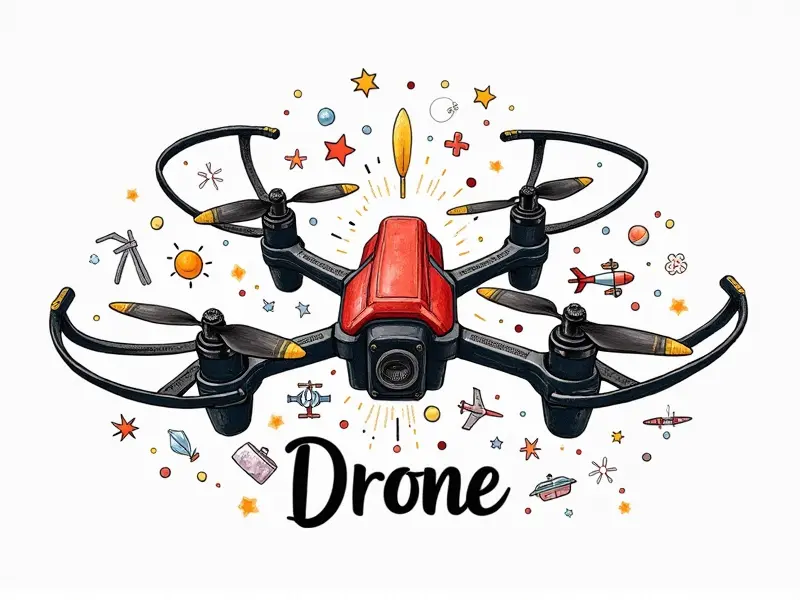RC helicopter safety measures

Top Safety Tips for RC Helicopters
Operating a remote control (RC) helicopter can be an exhilarating and rewarding hobby, but it comes with inherent risks. Ensuring the safety of both yourself and your equipment is paramount. Here are some top safety tips to keep in mind:
Essential Safety Gear for RC Pilots
Before you start flying, make sure you have all the necessary gear to protect yourself from potential hazards:
- Helmets and Face Shields: Protect your head and face from debris or propeller accidents.
- Gloves: Prevent cuts and bruises from sharp edges on the helicopter.
- Eyewear: Shield your eyes from dust, dirt, and small objects that may fly into them during flight.
Avoiding Common RC Helicopter Accidents
To minimize accidents, follow these guidelines:
- Proper Training: Always seek professional training before attempting to fly your RC helicopter.
- Practice in Controlled Environments: Start flying in open fields or designated flight areas away from people and obstacles.
- Avoid Overconfidence: Never underestimate the power of a small rotor system. Always maintain focus and control.
Safe Flying Zones for RC Helis
Selecting an appropriate flying location is crucial:
- Open Spaces: Fly in large, open areas free from trees, buildings, or other obstacles that could cause a crash.
- No-People Zones: Avoid crowded places where people might get injured by falling parts of the helicopter.
- Weather-Proof Areas: Choose locations with sheltered areas to protect your equipment from rain or strong winds.
Maintaining RC Helicopter Batteries Safely
Batteries are a critical component and require proper care:
- Charge Correctly: Always use the recommended charger for your battery type to prevent overcharging or undercharging.
- Store Properly: Keep batteries in a cool, dry place away from flammable materials and direct sunlight.
- Inspect Regularly: Check for signs of damage such as swelling, leaks, or cracks before each use.
RC Helicopter Emergency Protocols
In case of an emergency, follow these steps:
- Power Off Immediately: Turn off the power supply to avoid further damage.
- Assess Damage: Check for any visible signs of damage before attempting repairs or reassembly.
- Contact Support: Reach out to your manufacturer’s support line if you need assistance with troubleshooting or repair.
Weather Considerations for RC Flight
Understanding weather conditions is essential for safe flying:
- Avoid Strong Winds: High winds can make it difficult to control your helicopter and increase the risk of crashes.
- Beware of Rain: Flying in wet conditions can cause electrical malfunctions or short circuits, damaging your equipment.
- Check Temperature Extremes: Extreme heat or cold can affect battery performance and overall flight stability.
Preventing RC Helicopter Crashes
To reduce the likelihood of crashes:
- Regular Maintenance: Keep your helicopter well-maintained with regular cleaning, lubrication, and inspection.
- Flight Planning: Plan your flight paths carefully to avoid obstacles and ensure you have enough space for maneuvers.
- Battery Management: Ensure batteries are fully charged before each flight session to prevent unexpected power drops.
Understanding RC Helicopter Propellers
The propeller is a vital part of your helicopter’s propulsion system. Here’s what you need to know:
- Propeller Types: Different types of propellers are designed for specific performance characteristics such as speed, lift, and efficiency.
- Installation: Ensure the propeller is securely attached with no wobble or play. Loose propellers can cause serious accidents.
- Maintenance: Regularly check for damage like cracks or wear that could compromise performance and safety.
RC Helicopter Pre-Flight Checks Explained
A thorough pre-flight inspection is crucial to ensure everything is in working order:
- Battery Levels: Verify that all batteries are fully charged and properly connected.
- Motor Function: Test the motor for smooth operation without unusual noises or vibrations.
- Control System: Check the transmitter and receiver connections to ensure reliable communication between them.
RC Helicopter Maintenance for Longevity
To extend the lifespan of your RC helicopter, follow these maintenance tips:
- Cleaning: Regularly clean dirt, dust, and debris from all components to prevent wear and tear.
- Lubrication: Apply appropriate lubricants to moving parts like gears and bearings for smooth operation.
- Repairs: Address any issues promptly to avoid compounding problems that could lead to more significant damage.
Conclusion
Safety should always be your top priority when flying RC helicopters. By adhering to the safety tips and guidelines outlined in this article, you can enjoy a thrilling hobby while minimizing risks to yourself and others. Remember to invest in proper gear, maintain your equipment diligently, and adhere to safe practices at all times.

